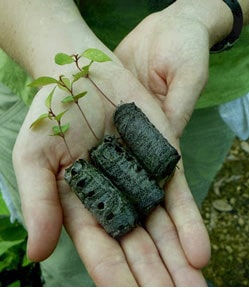We want to take active responsibility for environmental protection.
As the first hotel in Mecklenburg-Vorpommern with a climate-positive balance sheet, we are of course also interested in providing impetus beyond the borders of our region, creating networks, sharing experience and gaining new supporters.
We want to show that tourism and ecology can go hand in hand and that sustainability can also be achieved in the upscale hotel industry. With every ecological measure, we want to increase the well-being of our guests and reduce environmentally harmful emissions.
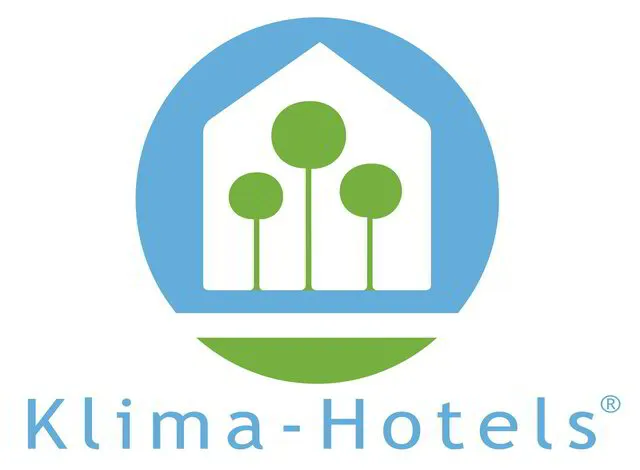
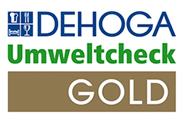
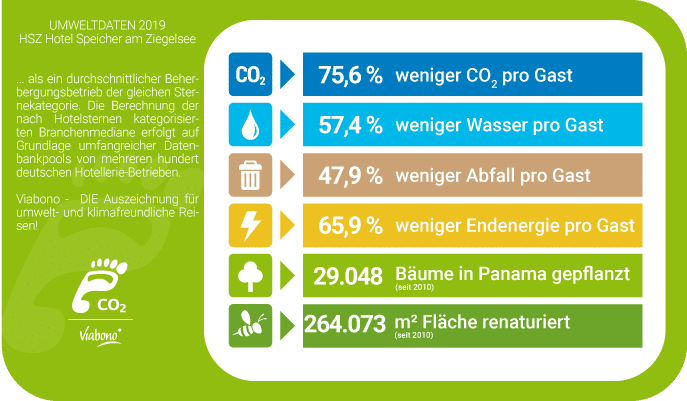
In October 2005, we were the first hotel in the Mecklenburg-Schwerin region to be certified by the Viabono umbrella brand. The VIABONO umbrella brand is a joint initiative of the Federal Government in co-operation with tourism, environmental and consumer associations. The VIABONO Trägerverein e.V. now includes 18 leading organisations (including the German Hotel and Restaurant Association DEHOGA, ADAC, NABU, German Tourism Association, ADFC).
Based on a comprehensive catalogue of criteria, all Viabono members undergo a strict admission check. This quality control is carried out in several stages, from the submission of supporting documents and random checks on site to customer-supported quality management.
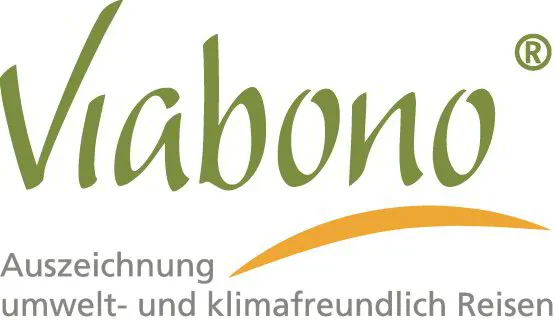
We have been creating a CO2 footprint for eleven years now. As early as 2010, the hotel was one of the first in Germany to offer its guests climate-neutral overnight stays. The hotel is a co-founder of the 'Klima-Hotels Deutschland' initiative, whose members fulfil the requirements for certified and ecological hotel management with the help of the 'Viabono'* environmental label.
The Klima-Hotels are among the most environmentally friendly hotels in Germany! They have committed themselves to continuously reducing CO2 emissions and offsetting the unavoidable residual emissions by investing in recognised climate projects via their own reforestation project in Panama. The Klimahotels thus play a pioneering role in the hotel industry.
In November 2017, we finally became the first hotel in northern Germany to be certified with a positive carbon footprint. Climate-positive means that we now bind more CO2 via climate protection projects than we actually produce in our hotel operations. This means we are making a positive contribution to the biosphere. From now on, more than ever, if you sleep or stay with us, you are doing something good for the climate!
Viabono is the certifier of the CO2 footprint, which is recalculated for us on the basis of the CO2 emissions generated in hotel operations. All CO2-relevant processes in the areas of energy, buildings and technology, food, cleaning, print, delivery routes, etc. are recorded. Even employees' journeys to work, including distance and type of transport, are taken into account in the calculation!
In 2012, we offset some of our greenhouse gas emissions for the first time through a rewetting project of drained moorland in Mecklenburg-Western Pomerania. Moors consist of peat, which has bound a lot of carbon in organic form. As a result of the drainage of moors, this carbon reacts with oxygen to form carbon dioxide, one of the most important greenhouse gases. By rewetting the former moorland areas, the decomposition of the peat into carbon dioxide is stopped.
This so-called Moor Futures project was developed by the Ministry of Agriculture in close cooperation with Greifswald University of Applied Sciences and NABU e.V.. Offsetting on site makes our work for climate protection even more transparent and, above all, tangible for our guests.
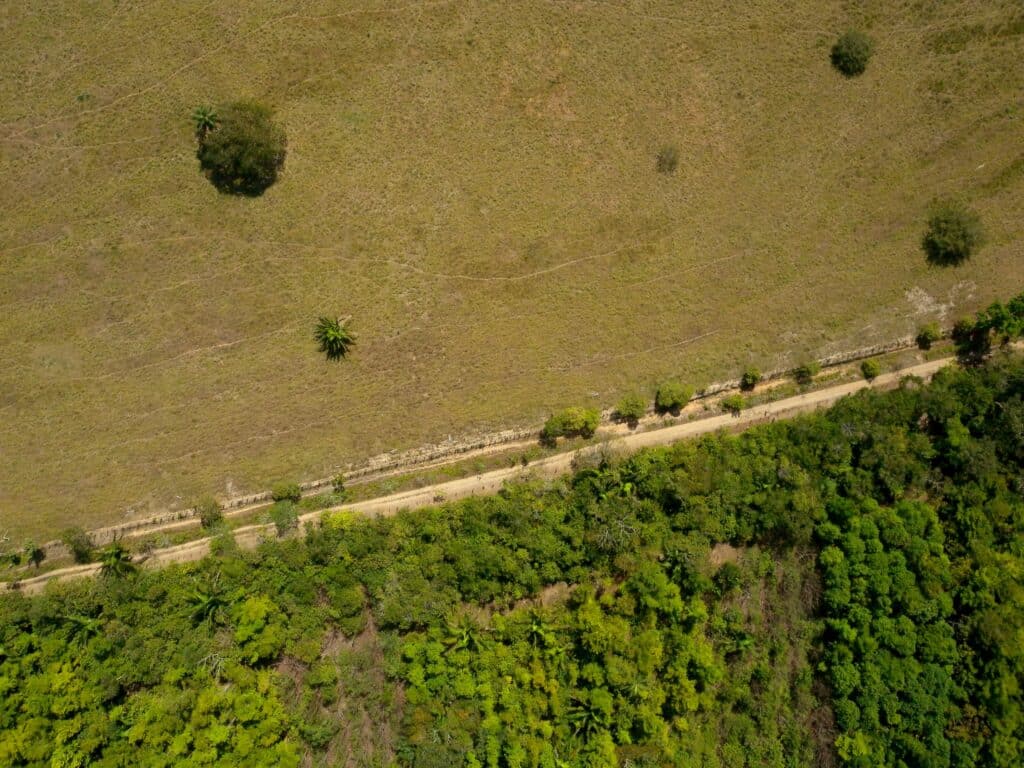
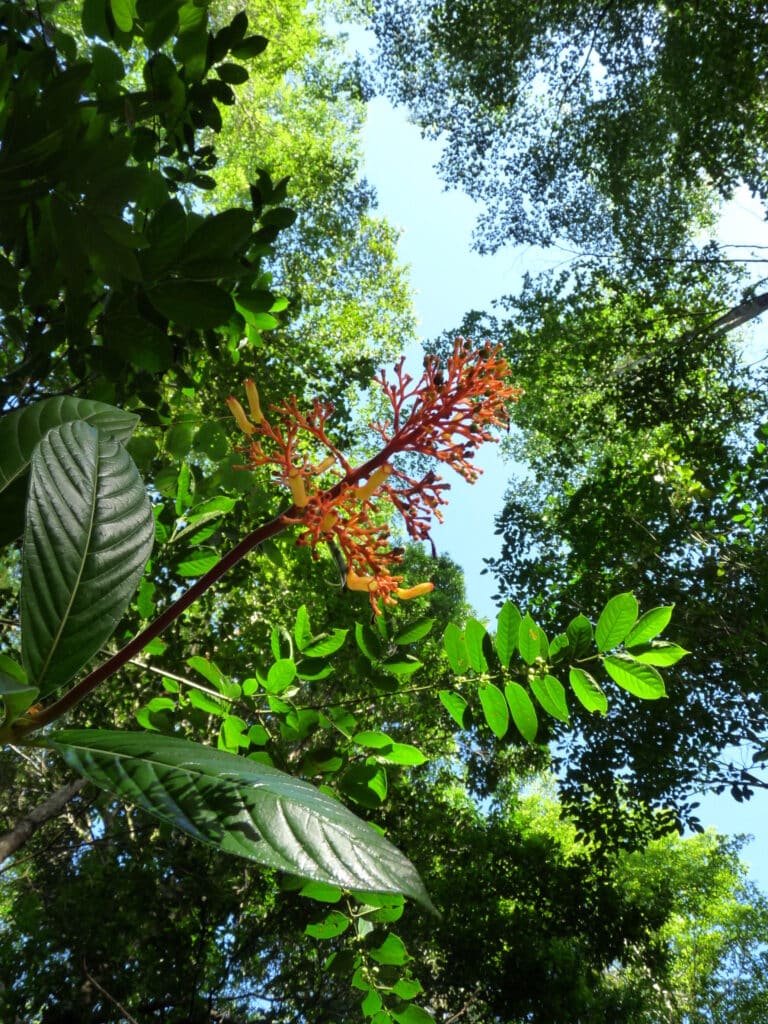
264 hectares of forest, an area the size of 227 football pitches, were reforested by Klima-Hotels together with CO₂OL in Panama between 2010 and 2022. Young trees planted on previously extensively utilised cattle pastures and fallow land are growing into a mixed forest owned by the cooperation.
The high proportion of native tree species and the reforestation in mixed cultures creates an ecosystem that provides new habitats for animals and plants. As a result of the reforestation, the following animal species, for example, have found a new home: Pakas, mantled howler monkeys, coyotes, agoutis, armadillos, golden tree climbers, southern possums, jaguarundi, ocelots, white-trunked coatis, tungara frogs, etc.
In addition, original habitats were made usable again.
The project helped to improve working and living conditions in rural areas of Panama.
The employees receive a salary above the statutory minimum wage, including statutory health and pension insurance. Training and further education ensures a higher level of education and opens up access to new jobs.
In this way, the climate hotels offset the unavoidable CO₂ emissions generated in the hotels and determined by the carbon footprint.
We have often been asked why we reforest in the tropics and not in native forests. It makes sense to reforest in the tropics, as plant growth (biomass growth = CO2 sequestration) is much faster in the first few years than in our latitudes
There are only a few designated "biodiversity hotspots" worldwide, countries and regions in which a particularly large number of animal and plant species occur per unit area. Panama is one of them. Forest loss is particularly damaging here because it destroys biodiversity. The result is the extinction of animal and plant species.
New afforestation with native species can serve as a stepping stone biotope, i.e. connect isolated, existing primary or secondary forests and thus increase the exchange and re-colonisation of species.
